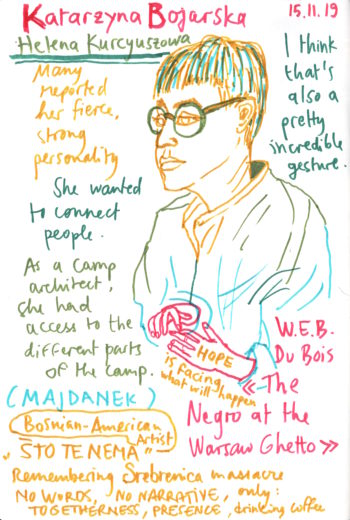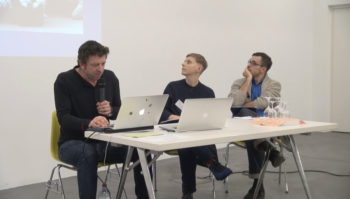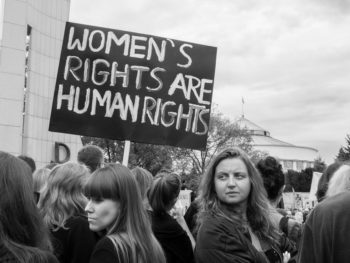Divided We Stand or Revolutionary Love in the Making. A lecture by Katarzyna Bojarska
Text: Katarzyna Bojarska
Apr 26th 2020
If as Ernst van Alphen claims, «affect is the opposite of personal: it is social.» What it means is not so much that affects are not owned by individuals but rather, that their very origin is social, they are produced by and in interactions with numerous agent such as other people (their bodies most specifically) […]
Read more
Potent Collectivities: Aesthetics of Solidarity. A lecture by Jeremy Gilbert
Text: Jeremy Gilbert
Apr 8th 2020
A key feature of neoliberal culture has been its systematic inhibition of the emergence, survival and empowerment of ‘potent collectivities’ on any scale: from socially functional neighbourhoods to national political movements to transnational networks of solidarity. Democracy itself might be described as the potentiation of complex collectivities; and the directly anti-democratic, anti-social nature of neoliberalism had […]
Read more
Cultural change in Poland. The end of conservative consensus or a fascist future?
Text: Tadeusz Koczanowicz
Mar 5th 2020
Comments that appeared in the public sphere after the autumn elections in Poland didn’t take into account an important cultural dimension of the elections. The same can be said about the articles on the upcoming presidential elections in May 2020. People writing about Polish politics seem to look only at surveys or analyze performances of […]
Read more
The Herstory of the Black Protest. Solidary fight for democracy
Text: Weronika Szczawińska
Jan 21st 2020
The Czarny Protest (‘Black Protest’, a protest of women dressed in black) is one of the most important phenomena of the twenty-first century Poland. It is a series of events, a protracted revolution, an outcome of activities carried out by various groups and initiatives. It is linked with the past as well as the future. […]
Read more
La Suisse et la crise de 1956 – solidarité, actions et paradoxes
Text: Tiphaine Robert
May 9th 2020
Lorsque 200 000 personnes ont fui leur pays après le soulèvement hongrois d’octobre 1956, la Suisse a fait preuve d’une solidarité sans précédent. Elle a accueilli quelque 13 000 personnes sans condition. Tiphaine Robert examine les effets de la crise de 1956 et son impact sur la politique d’asile en Suisse.
Read more
“I can’t breathe”: Riots against racism as new grounds for international solidarity
Jun 23rd 2020
“I can’t breathe”: the last sentence of the African-American George Floyd, who was stifled by the Minneapolis police, resonates powerfully in the context of the Covid-19 pandemic. Indeed, the global health crisis has highlighted the inequalities in health care systems, especially in the US, where the African-American population is particularly affected. Beyond police violence, it […]
Read more



